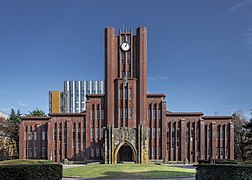University of Tokyo: “Online right-wingers” were not found to be vulnerable or isolated
The internet has become essential for our daily modern lives. I have studied the influence of the internet on the forming of public opinion. It has drastically increased the amount of information we can access and expanded the circle of people we can communicate with, enabling us to access a variety of opinions. Meanwhile, because the internet is a medium that is used to actively search for information, and owing to the filtering function that is incorporated in search engine algorithms, people may become more likely to access information posted by like-minded people, or information that agrees with their own opinion. In this case, an “echo chamber” phenomenon is thought to occur, in which accessing only opinions and information that support one’s own views further solidifies one’s original opinion.
In collaboration with Associate Professor Hiroki Takikawa of Tohoku University, I studied whether the echo chamber phenomenon actually occurs by focusing on people who are thought to be highly interested in politics and regarded as opinion leaders on Twitter (those who have at least 500 followers and have tweeted 1000 times or more). The results showed the polarization of these opinion leaders in terms of both network and tweet topics. We found six distinct communities, one of which mainly contains users that follow left-wing leaders, and another one of which is mostly comprised of users following right-wing leaders. Their discussion topics were also different, with the former focusing on issues such as government corruption and conspiracy law and the latter arguing about relations with neighboring countries. This suggests that people having different political views do not interact with each other, at least in the space of Twitter.
The issue of political polarization is often talked about in connection with online right-wingers. Although there is no clear definition of online right-wingers, the term generally refers to those who post or disseminate xenophobic rhetoric or historical revisionist opinions on the internet. They have been associated mainly with an image of the socioeconomically vulnerable and isolated. I studied whether this image of online right-wingers is valid using data from a web survey of 77084 participants registered with a research company. I defined online right-wingers as those who have xenophobic and conservative views and have posted or disseminated their opinions about political/social themes on the internet, and compared them with those who do not fit this definition. No difference was found in the level of education, household income, marital status or the presence or absence of someone they can confide in. This may suggest that the image of online right-wingers as the vulnerable and isolated is not valid. In a sense, this image may have resulted from “prejudice” against right-wingers by society. In the future, I will investigate the relationship between the internet and the shaping of public opinion by looking into mechanisms that disseminate opinions across clusters on the internet.

